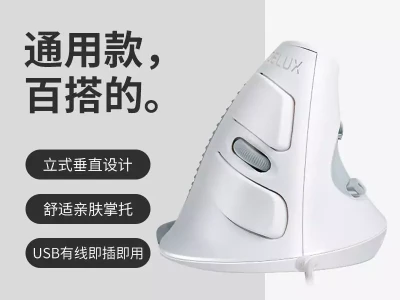根据沈阳市教育局公示及主流教材选用情况,沈阳小学六年级英语普遍使用**沪教牛津版(三年级起点)**教材。以下是该版本六年级上册单词的双语汇总及音标整理,结合权威教材资源与教学资料,确保内容准确性与实用性:
沪教牛津版六年级上册单词表(双语+音标)
Module 1 Getting to know each other
1. relative /ˈrelətɪv/
n. 亲戚;相关物
例句 :My grandparents are my closest relatives.(我的祖父母是我最亲近的亲戚。)
2. family tree /ˈfæməli triː/
n. 家谱
例句 :We drew a family tree in the history class.(我们在历史课上画了一幅家谱。)
3. granddaughter /ˈɡrændɔːtə(r)/
n. 孙女;外孙女
例句 :The old lady showed me photos of her granddaughter.(老太太给我看了她孙女的照片。)
4. grandson /ˈɡrænsʌn/
n. 孙子;外孙
例句 :His grandson is good at playing football.(他的孙子擅长踢足球。)
5. member /ˈmembə(r)/
n. 成员;会员
例句 :She is a member of the school choir.(她是学校合唱团的成员。)
Module 2 Our daily life
1. Earth /ɜːθ/
n. 地球;土地
例句 :We should protect the Earth from pollution.(我们应该保护地球免受污染。)
2. market /ˈmɑːkɪt/
n. 市场;集市
例句 :My mother goes to the market every morning.(我妈妈每天早上去市场。)
3. space /speɪs/
n. 空间;太空
例句 :There is a lot of space in this room.(这个房间空间很大。)
4. museum /mjuˈziːəm/
n. 博物馆
例句 :We visited the science museum last weekend.(上周末我们参观了科学博物馆。)
5. activity /ækˈtɪvəti/
n. 活动;行动
例句 :Outdoor activities are good for our health.(户外活动对我们的健康有益。)
Module 3 The natural world
1. wild /waɪld/
adj. 野生的;荒野的
例句 :There are many wild animals in the forest.(森林里有许多野生动物。)
2. south China tiger /saʊθ ˈtʃaɪnə ˈtaɪɡə(r)/
n. 华南虎
例句 :The south China tiger is an endangered species.(华南虎是濒危物种。)
3. blue whale /bluː weɪl/
n. 蓝鲸
例句 :The blue whale is the largest animal on Earth.(蓝鲸是地球上最大的动物。)
4. in danger /ɪn ˈdeɪndʒə(r)/
phr. 面临危险
例句 :Many plants and animals are in danger.(许多动植物面临危险。)
5. take care of /teɪk keə(r) ɒv/
phr. 照顾;照料
例句 :He takes good care of his little sister.(他悉心照顾他的妹妹。)
Module 4 Hobbies and crafts
1. e-friend /ˈiː frend/
n. 网友
例句 :I have an e-friend from Australia.(我有一个来自澳大利亚的网友。)
2. country /ˈkʌntri/
n. 国家;乡村
例句 :China is a beautiful country with a long history.(中国是一个历史悠久的美丽国家。)
3. hobby /ˈhɒbi/
n. 业余爱好
例句 :Reading and painting are my hobbies.(阅读和绘画是我的爱好。)
4. grade /ɡreɪd/
n. 年级;成绩
例句 :She is in Grade Six this year.(她今年上六年级。)
5. yourself /jɔːˈself/
pron. 你自己
例句 :Believe in yourself and you can do it!(相信自己,你能做到!)
Module 5 Travel plans
1. capital /ˈkæpɪtl/
n. 首都;资本
例句 :Beijing is the capital of China.(北京是中国的首都。)
2. north /nɔːθ/
n./adj. 北;北方的
例句 :Its colder in the north of the country.(这个国家的北部更冷。)
3. east /iːst/
n./adj. 东;东方的
例句 :The sun rises in the east.(太阳从东方升起。)
4. west /west/
n./adj. 西;西方的
例句 :California is on the west coast of the US.(加利福尼亚在美国西海岸。)
5. south /saʊθ/
n./adj. 南;南方的
例句 :They moved to the south for a warmer climate.(他们搬到南方去享受更温暖的气候。)
Module 6 Healthy habits
1. healthy /ˈhelθi/
adj. 健康的;有益健康的
例句 :Eating vegetables is healthy.(吃蔬菜是健康的。)
2. unhealthy /ʌnˈhelθi/
adj. 不健康的;有害健康的
例句 :Too much junk food is unhealthy.(太多垃圾食品不健康。)
3. hamburger /ˈhæmbɜːɡə(r)/
n. 汉堡包
例句 :He ate a hamburger and French fries for lunch.(他午餐吃了一个汉堡和薯条。)
4. cola /ˈkəʊlə/
n. 可乐
例句 :Dont drink too much cola.(不要喝太多可乐。)
5. vegetable /ˈvedʒtəbl/
n. 蔬菜
例句 :Carrots and broccoli are my favorite vegetables.(胡萝卜和西兰花是我最喜欢的蔬菜。)
Module 7 Signs and rules
1. sign /saɪn/
n. 标识;符号
例句 :There is a "No smoking" sign in the room.(房间里有一个“禁止吸烟”的标识。)
2. shopping centre /ˈʃɒpɪŋ ˈsentə(r)/
n. 购物中心
例句 :We went to the shopping centre to buy clothes.(我们去购物中心买衣服。)
3. careful /ˈkeəfl/
adj. 小心的;仔细的
例句 :Be careful when you cross the road.(过马路时要小心。)
4. mean /miːn/
v. 意思是;意味着
例句 :What does this word mean?(这个词是什么意思?)
5. litter /ˈlɪtə(r)/
v./n. 乱扔垃圾;废弃物
例句 :Dont litter in the park.(不要在公园里乱扔垃圾。)
Module 8 Good habits
1. keep /kiːp/
v. 保持;保留
例句 :We should keep our classroom clean.(我们应该保持教室干净。)
2. clean /kliːn/
adj./v. 干净的;清洁
例句 :She cleans her room every day.(她每天打扫房间。)
3. dirty /ˈdɜːti/
adj. 脏的;恶劣的
例句 :Your hands are dirty. Go wash them.(你的手脏了,去洗一下。)
4. rubbish /ˈrʌbɪʃ/
n. 垃圾;废弃物
例句 :Put the rubbish in the bin.(把垃圾放进垃圾桶。)
5. bin /bɪn/
n. 垃圾桶
例句 :There are rubbish bins on both sides of the street.(街道两旁都有垃圾桶。)
Module 9 Great cities of the world
1. tourist /ˈtʊərɪst/
n. 游客;观光者
例句 :There are many tourists visiting the Great Wall.(有许多游客参观长城。)
2. building /ˈbɪldɪŋ/
n. 建筑物;楼房
例句 :The new building is 50 stories high.(新大楼有50层高。)
3. palace /ˈpæləs/
n. 宫殿;宅邸
例句 :The Summer Palace is a famous tourist spot.(颐和园是著名的旅游景点。)
4. most /məʊst/
adj./adv. 大多数;最
例句 :Most students like English.(大多数学生喜欢英语。)
5. sushi /ˈsuːʃi/
n. 寿司(日本食物)
例句 :I tried sushi for the first time yesterday.(昨天我第一次尝试了寿司。)
Module 10 Air
1. air /eə(r)/
n. 空气;天空
例句 :The fresh air in the mountains is good for us.(山里的新鲜空气对我们有好处。)
2. everywhere /ˈevriweə(r)/
adv. 到处;处处
例句 :You can

